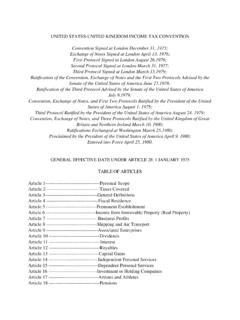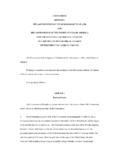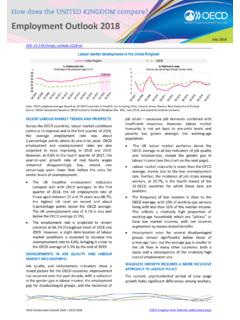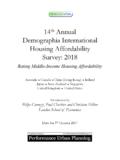Transcription of Income inequality data update and policies …
1 1 Income inequality data update and policies impacting Income distribution: united kingdom (February 2015) 1. Trends In the UK, the average Income of the richest 10% is almost 10 times as large as for the poorest 10%. The OECD average is , in France and Germany it is around 7 and in the US 16. Between 2005 and 2011 the average Income of the poorest 10% in the united kingdom fell 2% in real terms. While the average household Income in the UK is slightly lower than in Germany and France, the average Income of the bottom 10% in the UK is much lower.
2 The share of the top 1% of Income earners increased from % in 1981 to in 2011. At the same time, the top marginal Income tax rate saw a marked decline: dropping from 60% in the 1980s to 45% today The level of Income inequality among the total population in the united kingdom has been well above the OECD average in the last three decades. From a peak in 2000 and subsequent fall, it rose again since 2005. Recent data up to fiscal year 2012/13 suggests inequality has been constant since 2010. Taxes and benefits reduce Income inequality by a quarter in the UK.
3 This is in line with the OECD average, but below other European countries such as France, Germany or the Nordics. Changes in taxes and benefits combined have reduced household Income on average in the UK since 2007. The reduction has not been as large as in Ireland, Portugal, Iceland and Spain, but on the other hand, in united States, Germany, Estonia and France, tax-benefit changes increased household incomes over the same period. While in other countries Income tax changes played an important role, in the UK fiscal consolidation was driven mainly by changes in benefits.
4 Families earning around the average wage tended to gain, particularly due to the increase in the Income tax basic allowance. The impact on families in unemployment and with low earnings was dependent on the family composition: Families without children tended to lose, mainly due to changes in housing benefits. Families with children tended to gain through the rise in the child tax credit. Policy changes also reduced the Income of higher earnings families due to the withdrawal of child benefit and higher social contributions.
5 2 Income inequality data update and policies impacting Income distribution: united kingdom (February 2015) 2. Context The UK economy has been effective in creating jobs since the recession. Unemployment is low relative to other countries and total employment is at an all-time high. But productivity growth has been low, and this is reflected in low wage growth putting lower- Income households at risk of poverty. Figure 1. Trends and levels of Income inequality Trends in Income inequality , Gini coefficient Level of Income inequality , 2012 or latest year Source: OECD Income Distribution Database), The Coalition government is committed to balancing the budget in the medium term, aiming to achieve an absolute surplus by 2018/19.
6 The main opposition party (Labour) are also committed to reducing the deficit, but more slowly. In that context, the UK government has embarked on an ambitious programme of reform of the benefits systems, aiming simplify the system, align incentives and reduce costs. The Coalition aims to achieve this through spending cuts, rather than tax rises. This focus on spending cuts is one of the key drivers of reductions in social security spending, although the government would also argue that they are reforming systems to improve incentives and fairness.
7 Some areas of government spending ( health and education) have been protected from cuts, meaning that very large reductions are required elsewhere. 3 Income inequality data update and policies impacting Income distribution: united kingdom (February 2015) Welfare reform The Coalition government (and in particular the DWP Secretary, Ian Duncan Smith) has embarked on an ambitious programme of benefit reform, designed to reduce costs and improve incentives. The most high profile reforms include: Universal credit as the flagship welfare reform policy designed to simplify the benefits systems by paying all means-tested benefits under one system.
8 It hopes to improve incentives to work and reduce government spending. However, the implementation of UC has been dogged by technical issues, including around IT systems, and is well behind schedule. The benefit cap is designed to address concerns that some people were claiming large amounts of benefits as an alternative to work. Couples can now only receive a total of /week from a range of benefits (excluding pensions). The spare room subsidy dubbed the bedroom tax by critics requires public housing tenants with spare bedrooms to pay for the additional space with a reduction in benefits, or move to a smaller property.
9 While this is designed to address a real inefficiency in the underuse of housing, moving to a smaller property can be difficult and have personal and financial costs, so there must be effective transitional protection. While these plans are very ambitious and could fundamentally change the role of the UK state, it should be noted that during the second half of this parliament, the pace of deficit reduction slowed compared to initial plans. It is possible that the same might happen in the next parliament.
10 There is continuous discussion in the UK about maximum levels of benefits and benefit caps , but an informed debate about minimum levels of Income , or social protection floors , could help to protect vulnerable people during the period of transition and beyond. 4 Income inequality data update and policies impacting Income distribution: united kingdom (February 2015) 3. Impact of recent tax and benefit reforms on working-age families incomes Measures on Income taxes and working-age cash benefits implemented between 2007 and 2013 included fiscal stimulus in 2008-2009 and fiscal consolidation in 2010-2013.
















